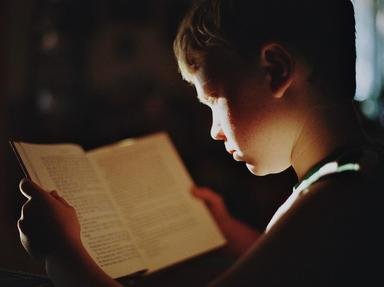Quiz Answer Key and Fun Facts
1. In a bout of drunkenness, young farm worker Michael Henchard auctions off his wife and baby daughter
2. Young socialite Daisy's dysfunctional marriage to a wealthy man and their mutual infidelity bring death to the people who become involved with them
3. A beautiful but selfish woman manipulates her husband and everyone around her - eventually bringing about her own demise
4. Jimmy Porter comes to increasingly resent his wife Alison because of the differences in their social class
5. Unjustly suspected of infidelity by her jealous husband Leontes, Hermione is thrown into prison and eventually believed dead
6. Emma's yearning for romance and escape from provincial life lead her to adultery and a tragic end
7. The heroine of this novel goes through five marriages - one of them with her half-brother - and various relationships before repenting of her wicked ways
8. Beautiful Dorothea Brooke's marriage to a much older, scholarly man turns sour because of his failure to involve her in his intellectual pursuits
9. Maggie and Brick's marriage is in crisis because of his alcoholism and suspected homosexuality
10. Helen Graham flees her abusive marriage, taking her son with her and living in strict seclusion in a formerly abandoned mansion
Source: Author
LadyNym
This quiz was reviewed by FunTrivia editor
looney_tunes before going online.
Any errors found in FunTrivia content are routinely corrected through our feedback system.
